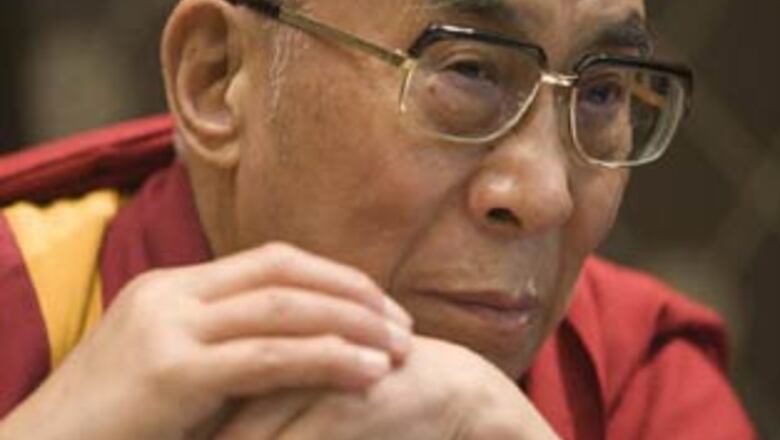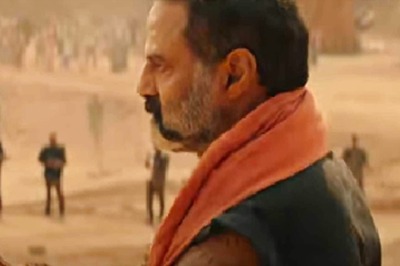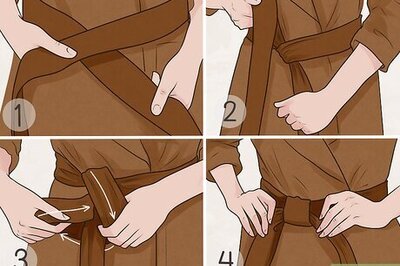
views
Geneva: Ethnic riots in Northwest China have exposed the failings of Beijing's minority policies, and a more "realistic" stance toward Tibetans and others could emerge within a decade, the Dalai Lama said on Thursday.
On a visit to Geneva, he said there were no talks under way between Beijing and the exiled Tibetans.
The Tibetan spiritual leader said the Uighur unrest in Xinjiang province in July showed the need for the Chinese Communist Party to rethink its approach.
According to the official toll 197 people died in the protest.
"The time has come," the Nobel Peace Prize winner said.
"Their policy basically failed to bring enthusiasm in the minority people," he said, citing a lack of trust across different Chinese groups.
In Xinjiang's worst ethnic violence in decades, native Uighurs last month attacked Han Chinese in the regional capital Urumqi after police tried to break up a protest against attacks on Uighur migrant workers in south China.
Chinese authorities said most of those killed in the riots were Han Chinese, who make up the overwhelming majority of China's 130 crore population.
Exiled Uighurs said security forces then detained thousands of Uighurs.
Lakhs of Han Chinese have migrated into Xinjiang during decades of Communist rule and tensions run high between them and Uighurs, a Muslim people culturally and linguistically tied to Central Asia.
CLEAR SPLIT
Last year violent anti-Chinese protests in Tibet led to 19 deaths and, according to exiles, a subsequent crackdown by security forces killed more than 200.
The Dalai Lama has lived in India since fleeing a failed uprising against Chinese rule in 1959. China accuses him of stoking unrest among Tibetans, while he says he opposes violence and seeks religious freedom and autonomy for the region.
Speaking to reporters after a meeting with Chinese and Tibetan activists, he described a "very clear" split between hardliners and moderates among China's leaders, and said Chinese intellectuals were increasingly pressing for a new stance.
"After five years, 10 years, I think things will change," he said, adding that many Chinese leaders privately acknowledged a need "to bring a more realistic policy".
"When I look at Tibet issue locally I am hopeless," the Dalai Lama said. "When I look at Tibet issue from wider perspective, I am very, very optimistic."


















Comments
0 comment